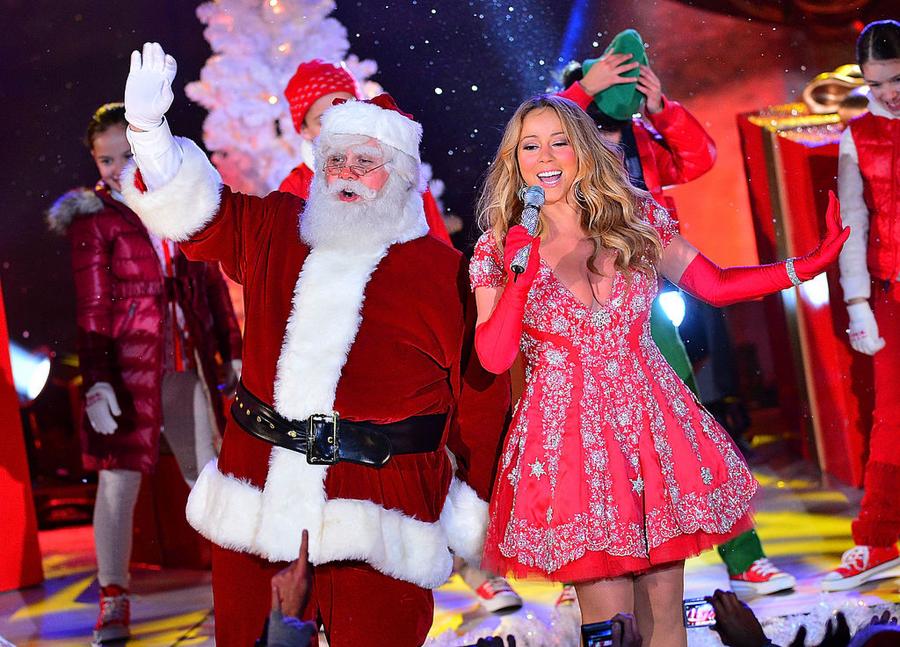Mariah Carey's "All I Want for Christmas is You" is one of the most inescapable pop harbingers of the holiday season, but a songwriter named Adam Stone hasn't been joining in the Christmas cheer. He took Carey to court over the song, which he claimed was an infringement of a song he released by the same name back in 1989, some five years before Carey's song first came out. But now, the BBC reports that a judge has ruled against Stone and the $20 million in damages he was seeking from Carey.
Stone filed the suit in 2022, claiming that Carey's smash hit was a copy of his own. But the presiding judge was not convinced and even proposed sanctions on Stone's attorneys for "vague… and incomprehensible mixtures of factual assertions and conclusions, subjective opinions, and other irrelevant evidence." Carey's song also doesn't exactly come off as a bastion of creativity in Judge Mónica Ramírez Almadani's ruling either, as she writes that both songs share "Christmas song clichés" that can't be copyrighted and have been present in many holiday season favorites over the years. Stone is now on the hook for Carey's legal fees in the case as well.

James Devaney/WireImage/Getty Images
As Carey's own attorneys put it in court:
"The claimed similarities are an unprotectable jumble of elements: A title and hook phrase used by many earlier Christmas songs, other commonplace words, phrases, and Christmas tropes like 'Santa Claus' and 'mistletoe.'"
The Carey legal team also had two expert musicologists to testify to the two songs' lack of concrete similarities, with "no significant melodic similarities," as Lawrence Ferrara of New York University put it. The judge agreed, and now Carey's seemingly immortal Christmastime pop classic can continue its reign of yuletide dominance unabated and without Stone sharing in any of the royalties. And as you might imagine, the royalties from "All I Want for Christmas is You" are pretty substantial.
Unfortunately, the song is also the source of a dispute between Carey and its co-writer. Songwriter Walter Afanasieff had a long working relationship with Carey but they have been estranged for years, and despite his co-writing credit on the song (and his 50 percent share in the royalties), he has said Carey excludes him from her accounts of the song's creation.
/2021/08/mariah.jpg)
/2021/12/Mariah-Carey.jpg)
/2023/06/Screenshot-2023-06-05-110207.jpg)
/2022/09/Screenshot-2022-09-15-004248.jpg)
/2019/12/GettyImages-107889324.jpg)
/2019/01/GettyImages-1048527012.jpg)
/2020/07/mlp.jpg)
/2009/11/Tim-Duncan.jpg)
/2010/01/GettyImages-183679600.jpg)
:strip_exif()/2020/06/taylor.png)
/2021/04/Sara-Gilbert.jpg)
/2010/05/Jaleel-White.jpg)
/2013/03/kellie.jpg)
/2019/03/Emmanuel-Macron.jpg)
/2010/03/Nicolas-Sarkozy.jpg)
/2022/10/Anne-Murray.jpg)
/2011/02/david-robinson-1.jpg)
/2022/02/Darius-McCrary.jpg)
/2020/03/kid-rock.jpg)
/2013/04/brian.jpg)
/2009/11/Axl-Rose.jpg)
/2025/03/Kelli-Ferrell.jpg)
/2020/03/kenny-rogers.jpg)